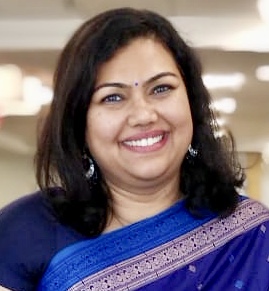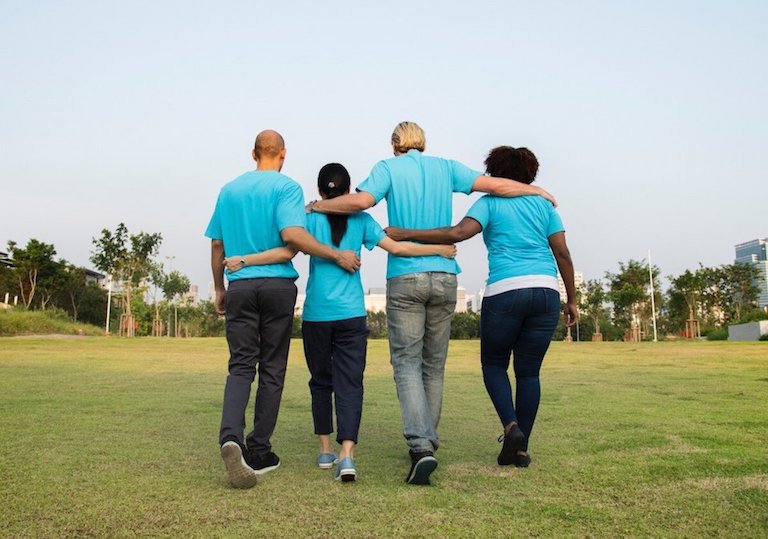By Vieshaka Dutta, Director, Inclusion & Diversity, Publicis Sapient
A woman in an elite urban apartment complex in India suffers domestic violence in silence. Or nearly as silently as she can. She is married and has two children. Never has she dared to try calling up the police. She has hardly even spoken to her family about it because it is too shameful for her to speak. It is most likely that they know, but they have never brought it up.
One day, a group of her neighbours – friends, heard a scream and called the police. The husband, a doctor, panicked when a policeman raised his hand towards him. He asked for mercy as he had a pacemaker, and is not well enough to endure physical trauma. The incident has calmed him down since then and the violence stopped.
An NGO works in a village in West Bengal on the prevention of child marriage and trafficking. They teach girl children to be on the watch and report to the NGO in case any underage girl is being married off. Once a 14-year-old girl was rescued in the middle of the marriage ceremony. She doesn’t understand that it saved her from a life of misery. The marriage, the gifts, the new clothes didn’t seem so bad. And the groom seemed quite friendly.
Anyway, the memory angered her so much that she made it a mission to stop an underage girl from getting married. She would vehemently follow any girl who even started actioning on a crush! Once the villagers caught her in a mud-fight with another young girl, and they had to wrestle them off each other. It was later heard that the other girl was planning to elope with her boyfriend that evening.
A person with a feminine name, and yet was always dressed in manly clothes. The person was a constant topic of jokes in the team at work. The team lead was very sure that he will not allow people to indulge in culturally unhealthy practices and will set things right. On the birthday of this person in question, the team pooled in money and got a cake and gift. The person was cheered, candles blown and the cake was cut.
Finally, the team members enthusiastically handed over the gift. The packet had beautiful bangles, bindi and a nice pink stole. The transman was fighting hard not to cry. He was unable to pull himself to the office for the next seven days.
His best friend from work who was out on a vacation returned to work and called on him. She was appalled at the experience her friend had to go through. She persuaded her friend to come to work and set up another meeting on the team calendar. Here, the team finds a cake and a nicely wrapped gift too.
She calls her friend and asks him to cut the cake while everyone sings the birthday song again. Nicely wrapped inside are a nice pair of biking gloves and some hiking gear. Her friend is touched and is saved by her kindness. In some years, he finds the courage to be out and also leads to LGBTQI advocacy at the same office.
These are short, true stories from different places in India. These are also very common incidents of violence, illegal trafficking and homophobia except that in each story, one person’s courage saves someone’s life. These individuals found the inspiration to speak up and do something most others don’t.
These people and many such stories are my inspirations to be an ally. An ‘ally’ is a person who stands up for others to proactively build inclusion in the workplace. They may not be from the marginalized group(s) and may not identify with their experiences. Yet, they make a concerted effort to better understand the struggle of another’s circumstances and speaks up.
In an organization, Allies are the most powerful force in fostering inclusivity. It is not incorrect to say that the success of an organization’s efforts to create safe and inclusive spaces lies majorly on “Allies”. Leadership commitment and recruiting underrepresented people, sensitization training and mentoring on breaking through unconscious bias can only do so much.
An organization is not likely to reap the benefits of a diverse workforce unless the sheer force of allies for diversity grows, and in more powerful ways. Our culture is defined by individual experiences, and hence the colleague next to me could ruin or strengthen all efforts to make an organization inclusive.
In times of COVID-19 and the aftermath that is described by experts to show up for the next two years, human empathy is probably the most needed essence to keep our homes and workplaces together. The biases are going to get exaggerated in the notion of being in an “unsafe” environment. At work, our ability to interact with people through the day that generally helps us bond is likely to be diminished. That leaves us to rely only on our judgment of limited interactions. I wonder how the visual of people’s homes on video calls play out in our judgments. And if people prefer not to be on video, do we still maintain the same level of trust?
JK Rowling in her Commencement Speech at Harvard said, “The power of human empathy leading to collective action saves lives and frees prisoners.” At work, let us harness the power of human empathy and free ourselves of the prisons of judgment and bias. This is bound to help organizations and businesses stay at their innovative best and remain sustainable.
How do we demonstrate being actionable allies, to make workplaces safe and enable people to thrive?
– Speak up: Even when you are unsure of how this may pan out. Underrepresented people may not be comfortable raising issues due to a fear of backlash or the risk of jeopardizing professional relationships. We have a better chance of bringing a change if people make it their business to call out unacceptable behaviours. This includes leaders, HR professionals and every colleague in the organization.
– Contribute your time and be a SPONSOR: Be the champion for someone from an underrepresented community. Help in retaining them and achieve career advancement. Mentoring is providing advice where Sponsors are actively involved in aiding career progression.
– Learn about efforts towards the inclusion of underrepresented groups in your organization: Remember to ask everyone in a team to register their inputs in meetings. Ensure you take inputs from people outside your closest circle on decisions. Make an inclusive and gender-neutral language part of your lingo. Check accessibility of message, communication or office material before you send it out. Most software has built-in checks to support you, and newer applications are going ahead to support live transcription on video calls.
All of this is really easy to follow once you make it a part of your regular work. Inclusion needs to be intentional and business as usual. However, the question to ask yourself is: “What would you do differently to demonstrate that you are an ally?”
Views of the author are personal and do not necessarily represent the website’s views.
 Vieshaka Dutta is Director, Inclusion & Diversity at Publicis Sapient. She has over 15 years of experience and started her career in the field of environment management working with consultancies, corporates, national and international government organisations. Her interest and work shifted into the field of socio-economic environment, CSR and finally into a variety of HR roles. Her work on fostering Inclusion and Diversity spans over 10 years, in different industries and she is an SME in this field. She has large personal networks of women groups which she supports and is also a strong ally for LGBT+ support movement in India.
Vieshaka Dutta is Director, Inclusion & Diversity at Publicis Sapient. She has over 15 years of experience and started her career in the field of environment management working with consultancies, corporates, national and international government organisations. Her interest and work shifted into the field of socio-economic environment, CSR and finally into a variety of HR roles. Her work on fostering Inclusion and Diversity spans over 10 years, in different industries and she is an SME in this field. She has large personal networks of women groups which she supports and is also a strong ally for LGBT+ support movement in India.
To read more stories by Publicis Sapient, click here.
Thank you for reading the column. Please drop a line and help us do better.
Regards,
The CSR Journal Team


